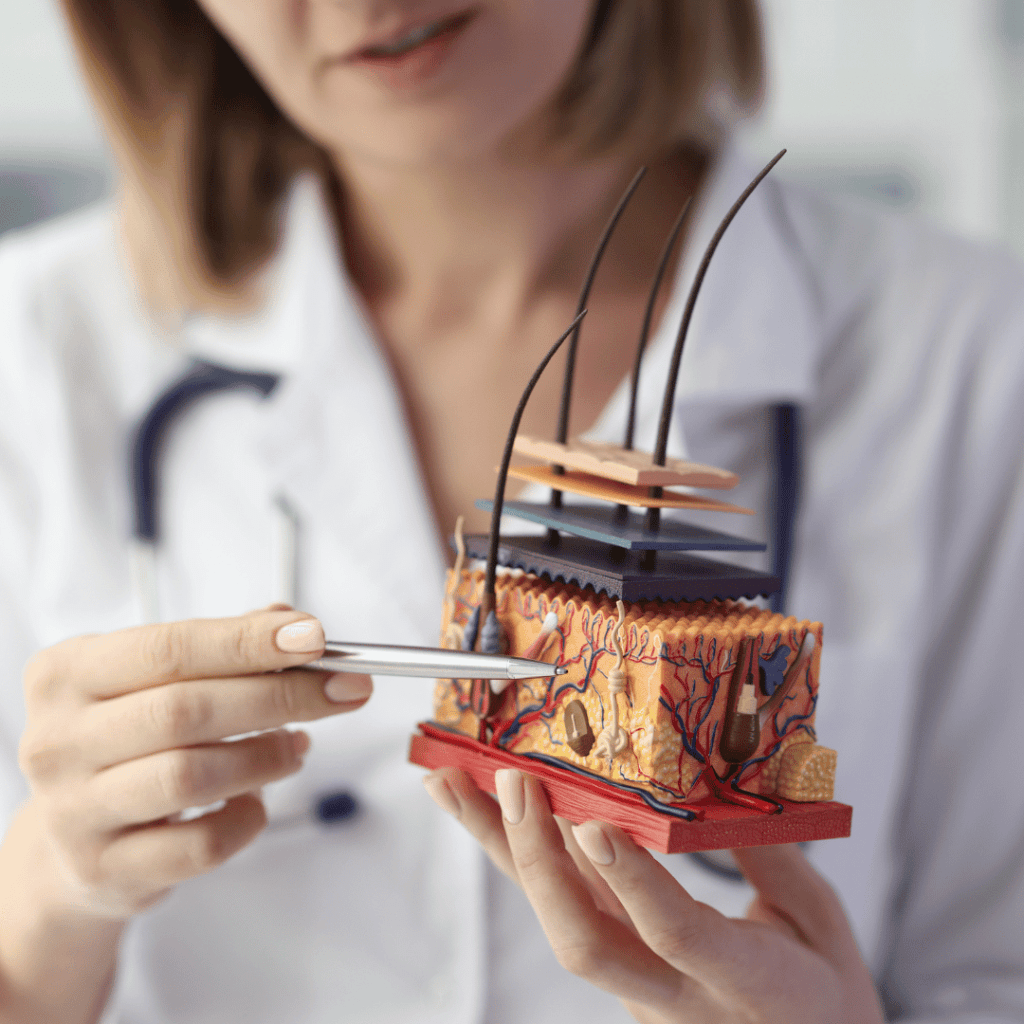Non-surgical Hair Loss Therapy
Hair loss is a common concern for both men and women. It can affect your appearance and impact your self-esteem. Fortunately, you don’t have to undergo surgery to achieve a fuller, healthier head of hair. Dermatology of Seattle & Bellevue offers a range of effective non-surgical hair restoration treatments to help you achieve your desired results.

Discover Effective Non-Surgical Hair Loss Solutions
Non-surgical hair loss solutions offer a range of treatments to boost hair growth and fight thinning. These treatments can be a great option for people experiencing hair loss due to many causes, including genetics, hormones, and medical conditions.
Understanding Hair Loss
Hair loss, or alopecia, can be caused by several factors. Common causes include:
- Genetics: Hereditary hair loss, such as male pattern baldness and female pattern hair loss, is the most common cause.
- Hormonal Changes: Conditions like postpartum hair loss and hormonal imbalances can lead to hair thinning.
- Medical Conditions: Disorders such as alopecia areata and other autoimmune conditions can result in bald patches.
- Diet and Nutrition: A lack of essential nutrients, like iron, can affect hair health and growth.
- Stress and Lifestyle: High stress levels and poor lifestyle choices can contribute to hair loss.

Our Non-Surgical Restoration Services
Non-surgical hair loss therapies offer a range of options to stimulate hair growth and treat hair loss without the need for invasive procedures.
- Medical Therapy: We offer FDA-approved medications, such as Minoxidil and Finasteride, that can help slow down hair loss and promote new hair growth.
- Platelet-Rich Plasma (PRP) Therapy: PRP therapy harnesses the power of your own blood platelets to deliver growth factors to your scalp by injecting platelet-rich plasma, into the scalp. The growth factors and proteins in PRP help revive dead hair follicles, stimulate new hair growth, and are effective in improving scalp health.
- Scalp Microneedling: This minimally invasive treatment uses tiny needles to create micro-injuries in the scalp, triggering the body’s natural healing response and stimulating hair growth.

Why Chose Non-Surgical Hair Loss Therapies
Non-surgical treatments offer several advantages over hair transplant surgery.
Less Invasive
Non-surgical hair loss therapies are less invasive than surgical options, reducing the risk of complications and side effects. Treatments like PRP therapy and microneedling are gentle on the scalp and provide effective results with minimal discomfort.
Minimal Downtime
Non-surgical treatments typically require little to no recovery time, and usually allow patients to resume their daily activities immediately after the treatment. This makes our treatments a convenient option for those with busy lifestyles.
Cost-Effective
Compared to expensive surgical hair transplants, non-surgical therapies are generally more affordable. This makes treatment accessible to a wider range of patients seeking to improve hair health without significant financial investment.
Choosing the Right Hair Loss Therapy
Selecting the most suitable non-surgical hair loss therapy requires careful consideration of various factors, Dr. Margit Juhasz will utilize a personalized approach to diagnose the root of your hair loss and create customized treatment plans based on your unique needs and goals.
Consult with our Hair Loss Expert
- Detailed Consultation: We will discuss your medical history, family history of hair loss, and lifestyle habits.
- Scalp Examination: A thorough examination of your scalp may reveal signs of underlying conditions.
- Blood Tests: In some cases, blood tests may be needed to check for hormonal imbalances or nutrient deficiencies.
Re-Assessment & Follow-Up
- Regular Follow-Ups: We will schedule regular appointments to monitor your progress and adjust your treatment plan as needed.
- Ongoing Support: Our team is here to answer any questions and address any concerns you may have throughout your hair restoration journey.
- Maintenance Strategies: We will equip you with the knowledge and tools to maintain your results and prevent future hair loss.


